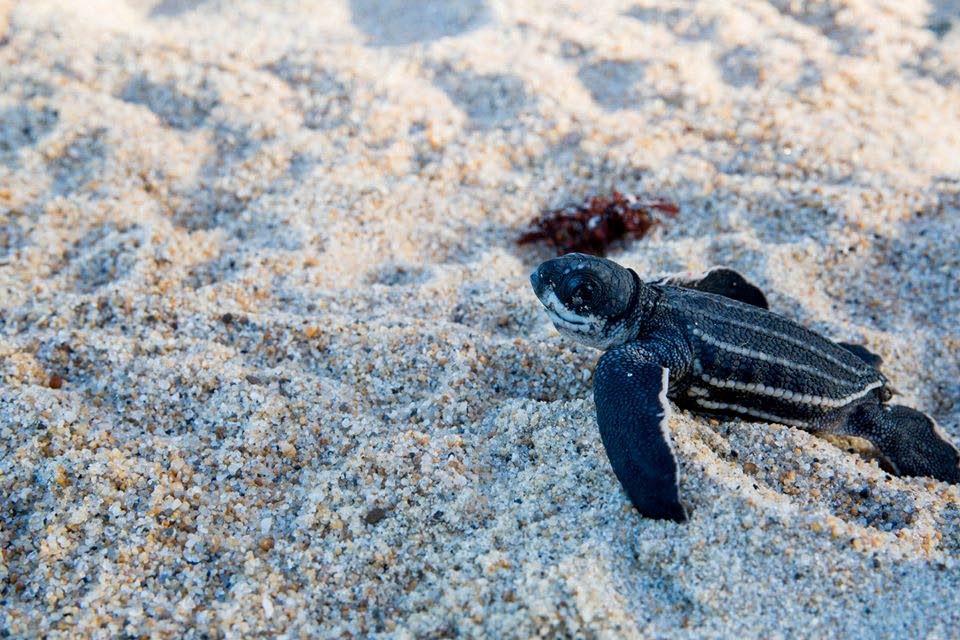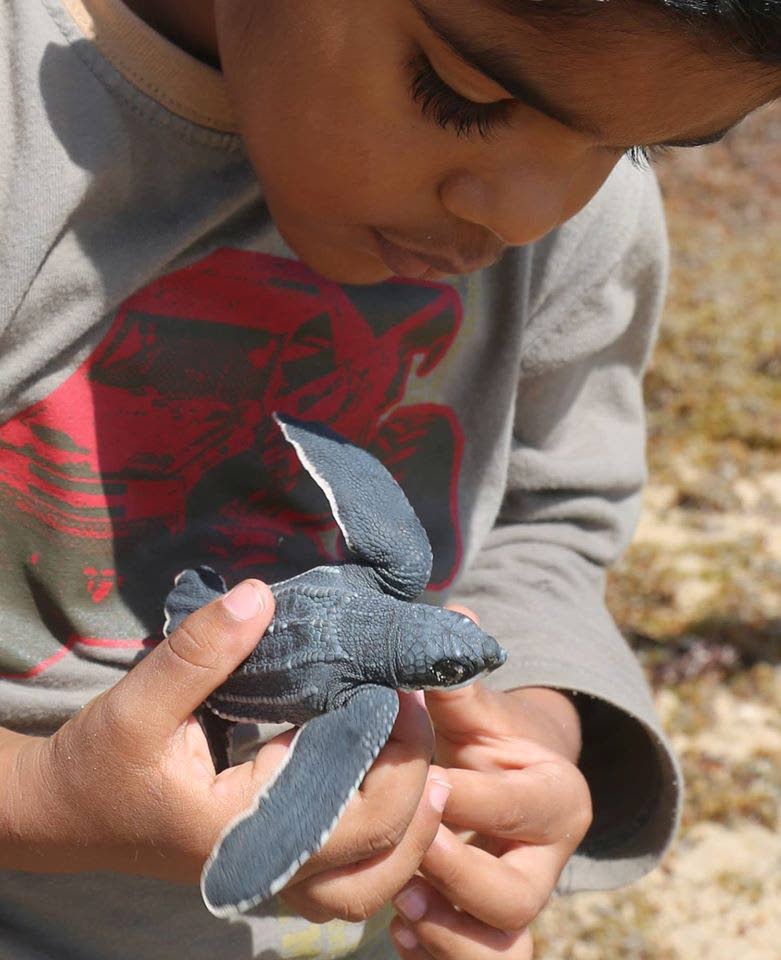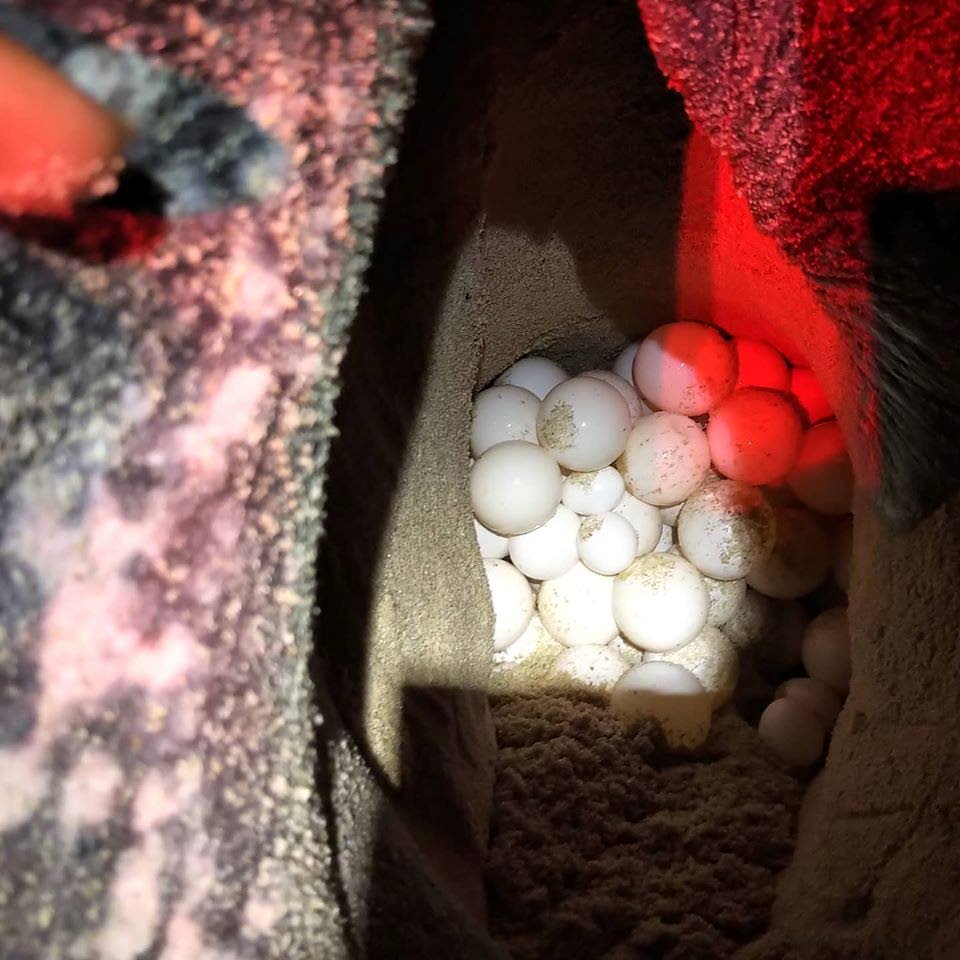Covid19 brings turtle watching to a crawl

Annually, between March and September, thousands of people visit Matura and Grande Riviere to witness the nesting of sea turtles. During turtle watching season, in these communities, revenue generated from visitors directly support turtle conservation efforts and is the source of income for community members who manage them.
As the covid19 pandemic continues to disrupt tourism activities locally, regionally and internationally, environmental conservation projects dependent on eco-tourism are now at risk.
Sunday Newsday spoke to members of Nature Seekers and the Turtle Village Trust to learn how the cancellation of turtle watching activities, thus far, for this year’s turtle watching season has affected conservation efforts and the community they support.
Nature Seekers was formed in 1990 after Matura was designated a Prohibited Area under the Forest Act as a result of years’ long slaughtering of egg-bearing female turtles. The group has since assisted in conservation efforts by managing eco-tourism activities and beach patrols in the community.
“The sea turtle eco-tourism activities facilitate the successful operation of Nature Seekers and accounts for most of our revenue as it relates to turtle conservation,” said Kyle Mitchell, chairman of Nature Seekers.
Residents of Matura support Nature Seekers’ conservation efforts by conducting duties like tours and beach patrols to safeguard nesting turtles. The group depends on the revenue generated by visitors to the community, which can reach up to 16,000 annually, to provide an income to these residents.
“As the local covid19 situation intensified, with more cases being reported combined with the restrictions, tours were suspended until further notice.”
“Knowing that the funds generated from eco-tourism is the main source of income, for the paying of patrols and data collectors, we had to reduce the number of patrols we normally do every night,” said Mitchell on the subsequent fallouts of the decision.
One nightly patrol team can have as much as eight people but due to covid19 that number has been reduced to, at most, three people. Though the group had to scale back its operations to adjust to its new financial realities and government’s stay-at-home regulations, Mitchell admits the decisions were not easy ones.

Scaled back patrols means nesting turtle populations are now left vulnerable and reduces the group’s ability to collect scientific data used to gain insight into the health of turtle populations to guide further conservation strategies.
“We (at Nature Seekers) are looking at the entire turtle watching season as a loss not only from the eco-tourism side but also from the collection of scientific data.
“With a bare minimum team, efforts are focused on the protection and not the data collection.”
Regular patrols of the beach also helped in the removal of sargassum seaweed which in large amounts can cause difficulties to nesting turtles and hatchlings. With reduced manpower, sargassum seaweed has now been left to accumulate on the beach.
As Nature Seekers contend with covid19’s challenges to conservation efforts, reduced revenue from a loss of eco-tourism also affects its ability to maintain its office spaces, pay bills, maintain field vehicles, conduct beach cleanups and public outreach campaigns.
“Even after restrictions are lifted it will take some time for things to return to 'normal'.
“We don’t have any specific activities planned to recover the losses of covid19. But we do have activities we were hoping to complete this year that will have to be pushed back to a time better suited,” said Mitchell.
Not all is lost though, Mitchell said reduced human traffic on the beach means there are fewer human interactions with nesting turtles. There is also the opportunity for less light and solid waste pollution which are usually a disturbance for the nesting turtles.
In Grande Riviere, the effects of covid19 on conservation activities are like Matura but Nicholas Alexander, a resident of Grande Riviere and a community representative for the Turtle Village Trust, said community livelihoods are reeling from the cancellation of turtle watching activities.

“Turtles in Grande Riviere are used as the catalyst to drive everything else.
“Since the start of covid19 we have totally shut down our turtle watching projects, our chocolate room and all our hotels are closed,” said Alexander.
With many residents in Grande Riviere out of work as conservation efforts and eco-tourism are placed on hold, Alexander said community members are resilient and holding hope.
“We (the residents of Grande Reverie) are holding on. A lot of people are taking it in stride.”

Comments
"Covid19 brings turtle watching to a crawl"